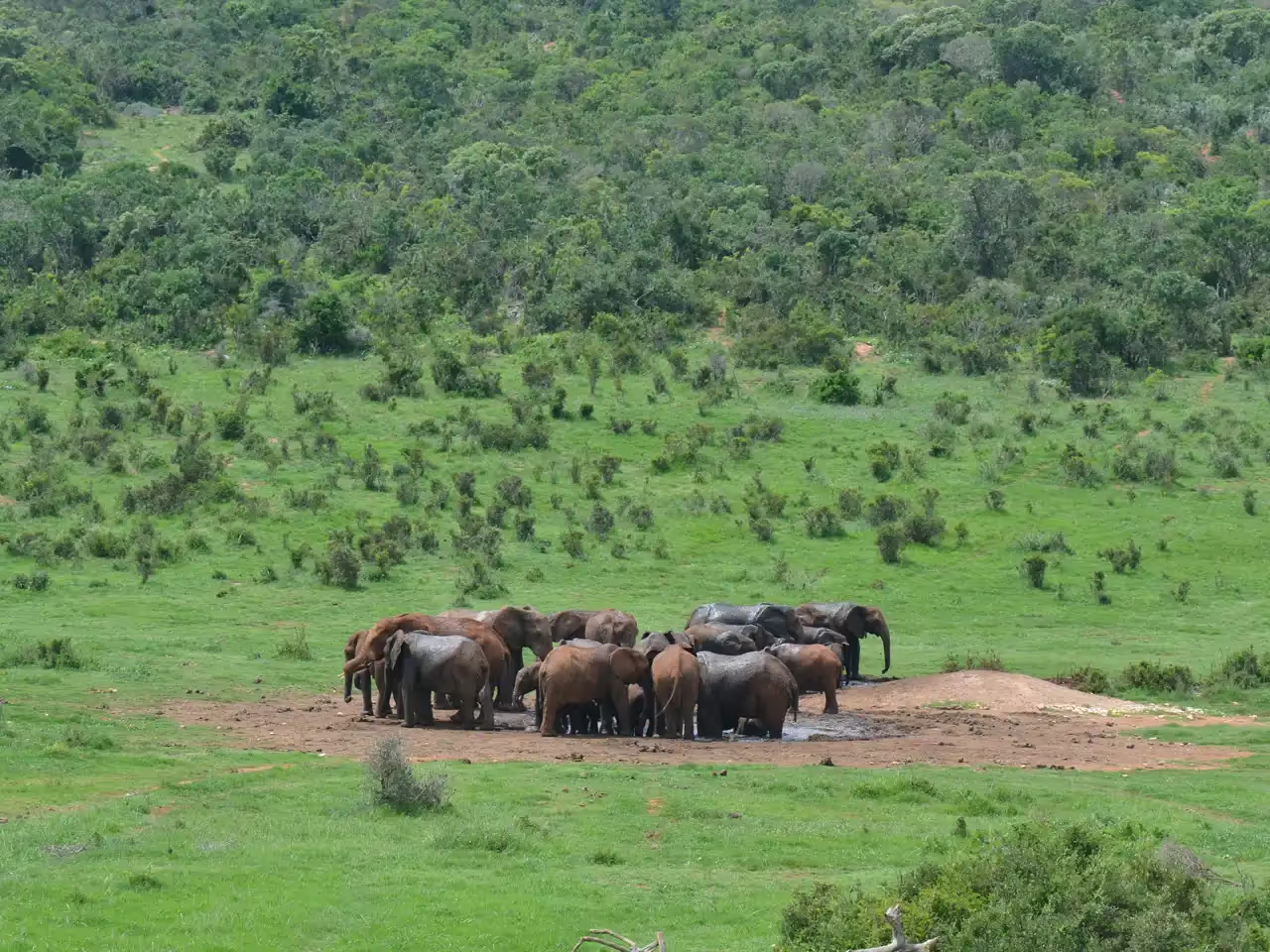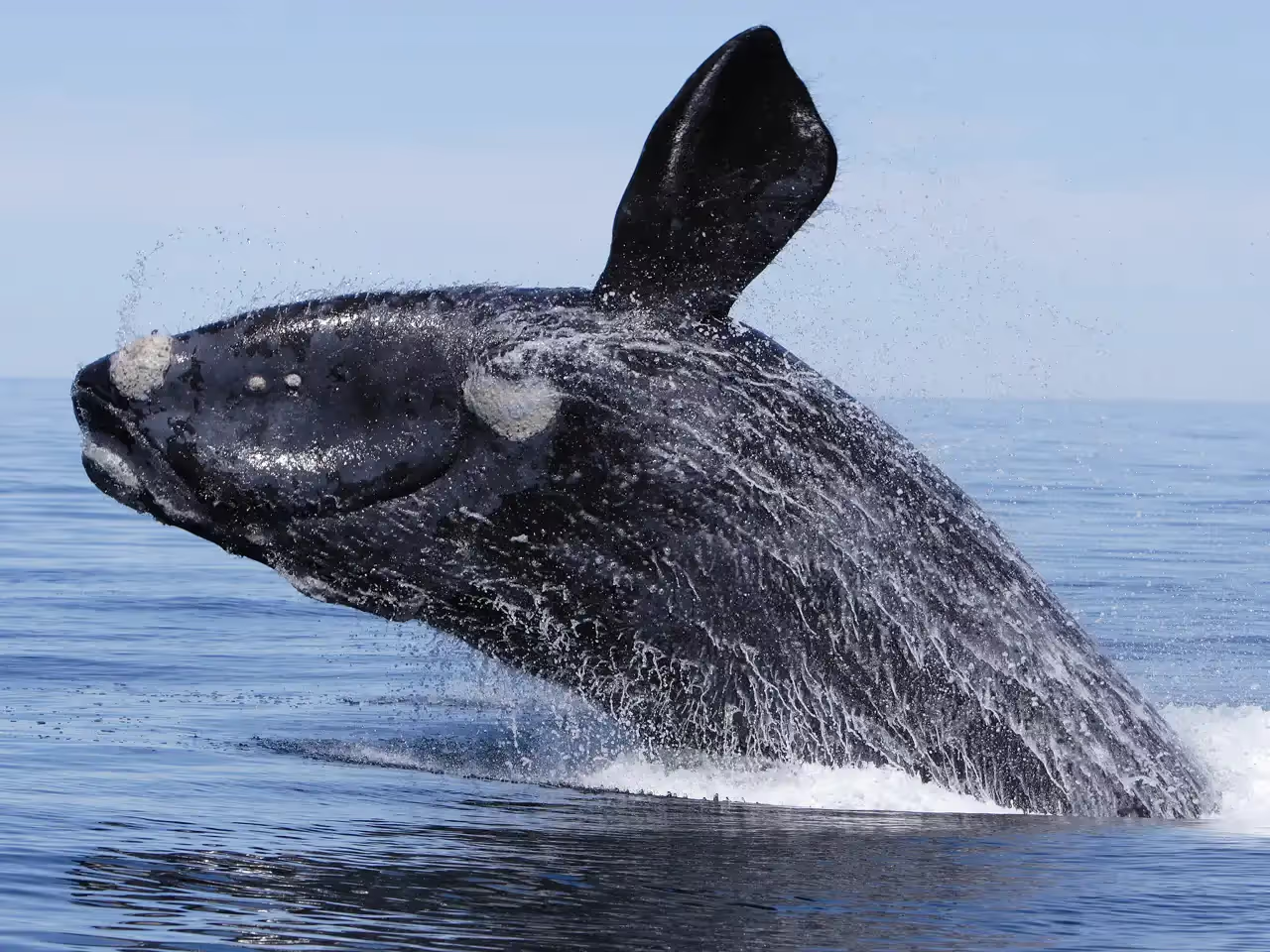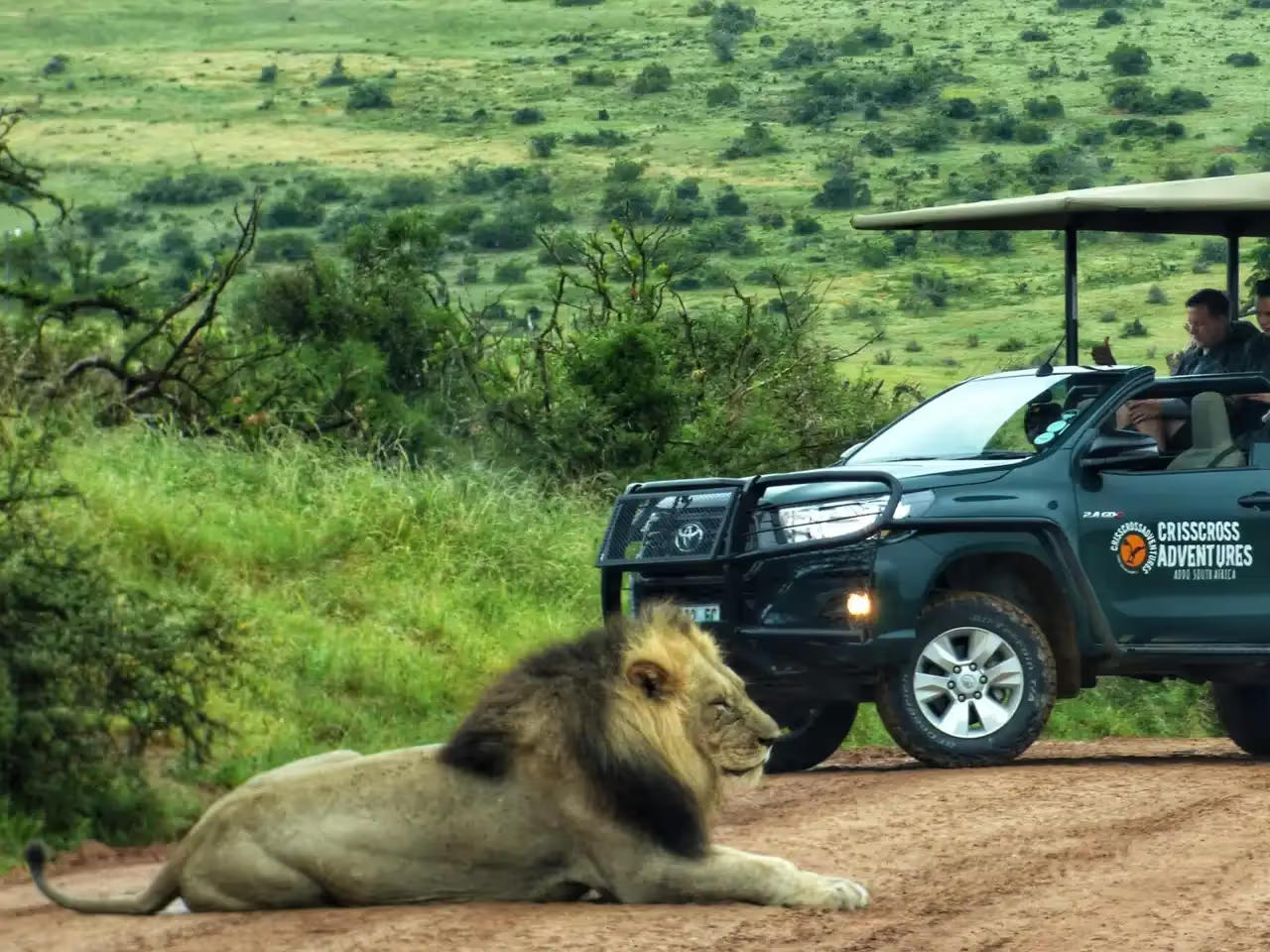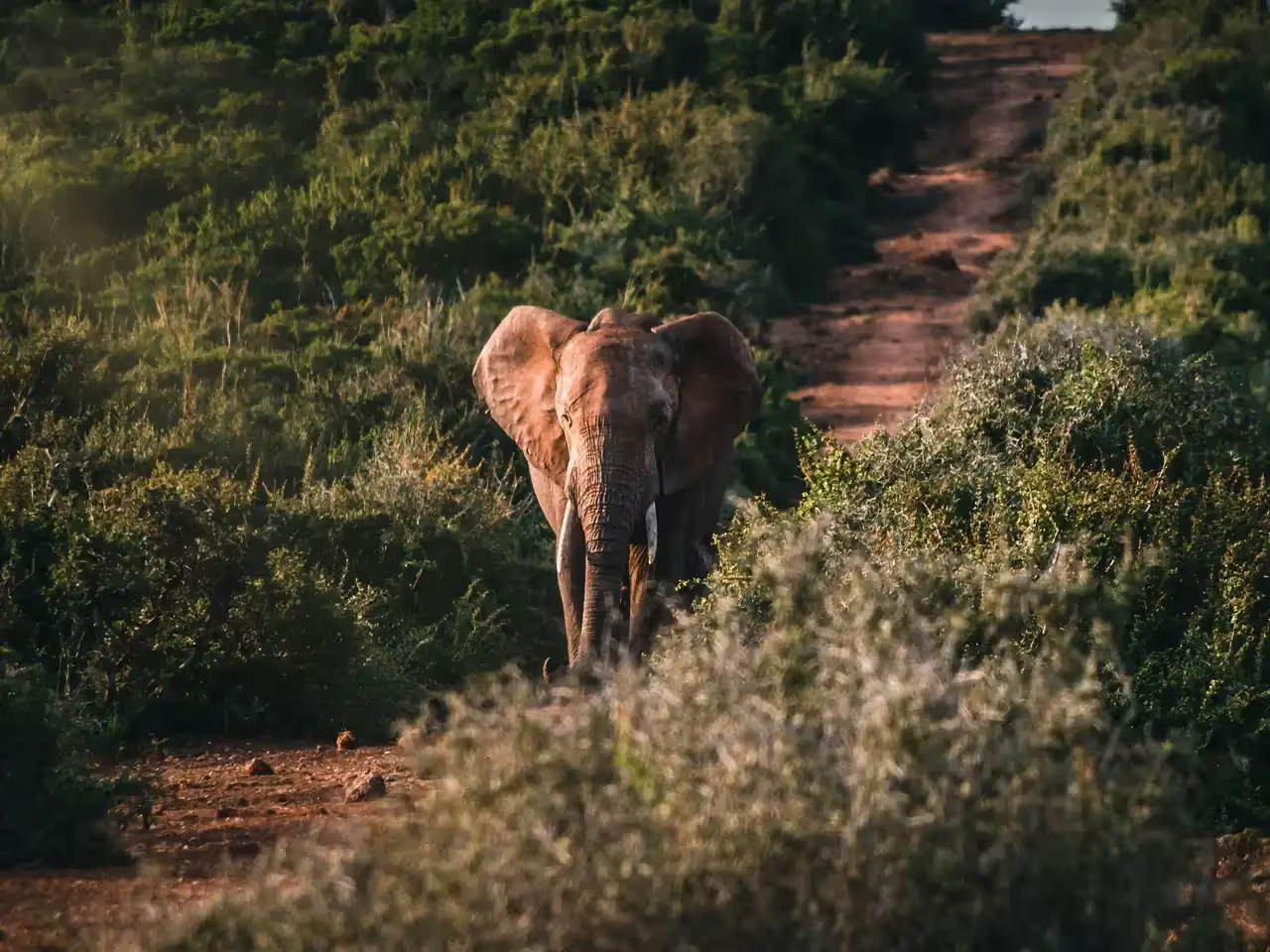




That’s how many elephants remained in this part of South Africa in the early 20th century, due to the impact of poachers and professional hunters.
In 1931, conservationists led by Sydney Skaife decided enough was enough and they stepped in to do something to protect these magnificent mammals.
The result was - and still is - Addo Elephant Park, the largest place you can safari in the Eastern Cape, and the third largest national park in South Africa, beaten only in size by Kruger and Kgalagadi.
The success of the project is to be found - you guessed it - in the numbers. Some say there are now over 600 elephant in the park, others say more, and some think a little less. Either way, it’s life affirming to see how well the population has recovered and grown, with many of the elephants in the park today being descendants from those original 11 survivors.

The allure of Addo Elephant Park lies not just in spotting the classic Big Five - lion, leopard, elephant, rhino and buffalo - but in its location, which expands the list to the Big Seven with the addition of whales and great white sharks. While the main game-viewing area of Addo is inland, the park itself stretches all the way to the coast, making it the only national park in South Africa that protects both land-based Big Five and marine species.
Addo Elephant National Park is about 40 to 50 km (25 to 30 miles) from the coast at its nearest point, but the marine safari portion specifically takes place in the marine section of the park near Algoa Bay, off the coast of Gqeberha (formerly Port Elizabeth). Addo Main Camp to Gqeberha Harbour / Algoa Bay: Approximately 70 km (43 miles) - about a 1-hour drive.
By adding a marine safari to your Addo visit, you can add the southern right whale and the great white shark to your spotter’s list, giving you a chance to chalk up sightings of more of the world’s most sought after wildlife. And you can set the record straight with anyone back home who may mistakenly think that seeing the Big 5 is the ultimate achievement.

Getting to Addo Elephant Park is relatively easy. It’s just a one hour drive from Gqeberha. The park is located in a dense valley that extends from Karoo in the north to the coast in the south, taking in the Sundays River region.
Many people choose to drive the 500 miles east from Cape Town to Addo, taking their time (a week or two) to take in the Garden Route along the way.
It’s a 10 hour drive south to Addo from Johannesburg, another journey you can take your time over, stopping to see various sights en route.
It’s not all about the elephants. Avert your eyes to the skies above Addo Elephant Park and you’re sure to be rewarded with the chance to spot all kinds of bird species. Literally hundreds of them hunt and fly in the skies over the park, wisely staying out of reach of the predators that prowl the ground below. Be sure to have cameras and phones at the ready.
It’ll come as little surprise that a big place like Addo Elephant Park offers a wide variety of different places for visitors to stay, both in and close to the park. Addo Main Camp, officially called Addo Rest Camp, offers accommodation that roughly divides into five categories: Guest Houses, Cottages, Chalets, Camp sites, Luxury safari tents. There are also plenty of Garden Route Safaris accommodation options just outside the park.
There’s no shortage of things to do wherever you stay in the park. The Main Camp is regarded as the hub and is where most guests choose to sleep, eat and book their activities.

Of course, getting eyes on wild animals is going to top your list of to-do’s and must-sees, and you have options how you go about that. Some choose to safari in their own vehicles, which is safe to do as many of the animals are used to seeing cars driving around. But taking this option means you’ll be relying on your own sharp eyes to spot the wildlife in the area.
This is why many prefer to take a seat on an organised guided safari aboard a vehicle driven for you. Rangers and trackers will ensure you don’t miss a trick, using their knowledge of the area to share with you the history of the region you’re exploring, and employing their experience to find even the most elusive animals.
Whatever option you choose, the best times for animal sightings are early morning and late afternoon as this is when most of the wildlife is out hunting.
For a completely different experience and the chance to see different kinds of wildlife, most camps will give you the option of taking a night drive or hike. On this, you’ll get to witness the nocturnal habits of the local animal population, as well as a chance to get a closer look at the flora, fauna, and smaller insects that call the park home.
Highlights that you won’t want to leave this area without trying to see include the bushman rock art in Zuurberg, the gannets and the second largest breeding population of African penguins.
Beyond game drives, there’s plenty to do in and around Addo Elephant Park. Explore the area on horseback, hike through the Zuurberg Mountains, or glide down the Sundays River on a canoe or boat cruise. Nearby citrus farms offer tastings and tours, while adventure-seekers can try sandboarding on the coastal dunes. You can even head to the coast for a marine safari, with the chance to spot dolphins, seals, whales and great white sharks. If you’re visiting with children, many camps offer child-friendly activities to keep young and demanding guests occupied, giving them experiences they’ll want to share with friends when they return to school.





"A dream come true"
We had the most amazing family holiday, everything worked so perfectly, the arrangements and accommodation was spectacular!
"Unforgettable trip to Namibia – Thank you Namibia Tours & Safaris!"
We are a group of four from Romania and spent 3 unforgettable weeks in Namibia. We can't recommend them enough, and for any future travels in Namibia or other parts of Africa, we will definitely use their services again.
"We had a great experience"
From the time we put the key in the ignition till we boarded the plane in Windhoek nothing went wrong.
"Unforgettable bird photography trip in Namibia"
It was a fantastic experience, everything was very well organised, went smooth and according to expectations. It was our first self drive in Africa and it was a great, unforgettable time.